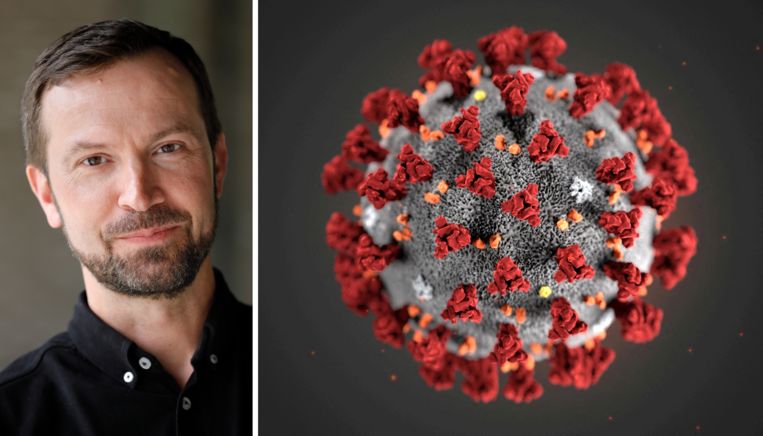The Francqui-Collen Prize is awarded each year to a scientist under the age of 50, and this year you are one of the winners for your contribution to the BEAST Programme. What exactly does the program do?
The program needs several items to build a virus family tree. Using the place and time of sampling and the genetic makeup of the virus or genome, we can reconstruct the family tree. This family tree shows us where the virus comes from and makes an estimate Spread period. This allows us to date specific mutations in viruses. For example, when a virus jumps from an animal reservoir to a human, how quickly does it spread and evolve. By the way, BEAST stands for Bayesian Evolutionary Analysis Sample Trees.”
What can you do with this information?
When new outbreaks of viruses, such as MERS, occur, certain questions arise. When and where did this virus appear? How fast is it spreading? And are there certain elements that make it spread faster, like navigation in population? The software will be able to answer these questions more quickly.”
Can this program help us during the Corona pandemic?
The software has already been used many times in different academic studies. But it is still difficult to make a real impact in an epidemic of this magnitude. The amount of mutation in corona is too limited to apply to contact tracing, for example.
“With this software, we can find the source of the virus more quickly and thus nip the spread in the bud. I’m thinking of viruses like Ebola and avian influenza. Once the genomes of a virus are identified, we can reconstruct its evolutionary history since its outbreak. This is especially important because we then find out how many introductions there are.” Or what infection is there and where it came from: Are there different sources carrying the virus or should we look for one specific source? If there are many of them, we need to discover those sources and stop the transmission.”
What does this award mean to you?
“It’s a huge estimate. This kind of computational or bioinformatics work is still often seen as a support for other disciplines, but I think it’s now also showing that it’s an important core area in its own right. Technology can really complement medicine. And I think our methods will play a role.” Important and pioneering in confronting the spread of viruses accurately and quickly. Because the number of virus outbreaks has increased in recent decades, because we are increasingly dealing with animals that carry unknown viruses. By using this program, we will be able to intervene more quickly in the event of a disease outbreak. It is already used in the whole world.
It is also good that a virologist and epidemiologist receives the award. Our research has been further supported and brought into the spotlight since the Corona pandemic. On the other hand, this interest has led to negative reactions in some cases. Then this recognition is good.
This is the second time that the Francqui Foundation has awarded the prize to two laureates. In addition to Lemey, Professor Sarah-Maria Fendt (KU Leuven) has also been crowned for her cancer research. Fendt researched nutrients that cancer cells need to multiply in organs. Her research shows that cells need different substances as they grow. This new knowledge could lead to a potentially life-saving treatment, since most cancer patients today die from the consequences of metastasis.

“Total coffee specialist. Hardcore reader. Incurable music scholar. Web guru. Freelance troublemaker. Problem solver. Travel trailblazer.”






More Stories
“Ask at least one question in return.”
Elbendamers in the Sun: What a Wonderful Little Village
European Space Agency – Space for Kids